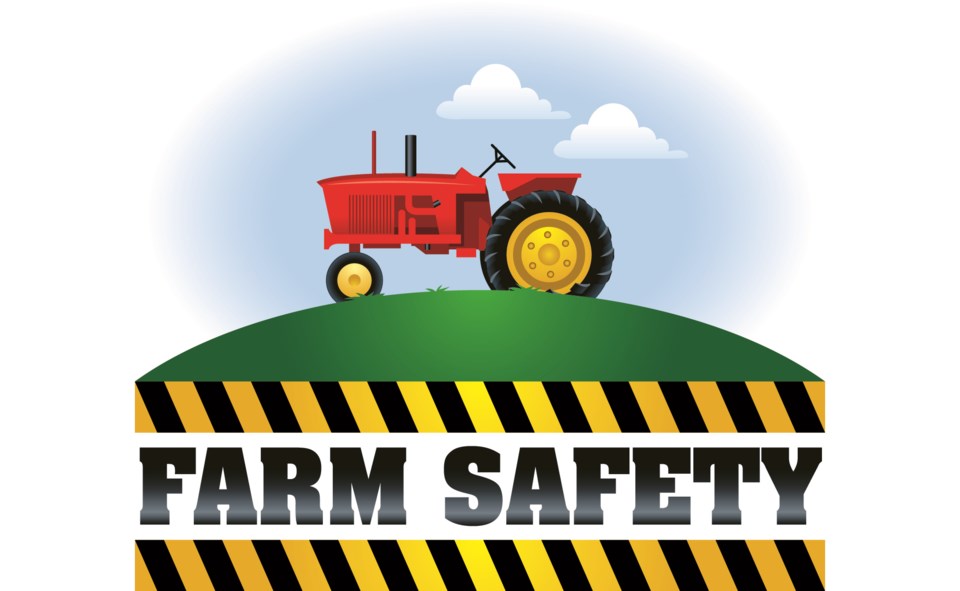LAKELAND – Farmers are gearing up for the growing season, and fire authorities in the Lakeland region are reminding farmers – and the public - to be mindful of fire hazards.
Henry Thomson, deputy fire chief with the St. Paul Fire Department, says while the recent snowfall is certainly welcome this winter, unless the region gets a bit more of snow – or significant rain in the early spring, “It’s looking like we are heading into a very dry spring fire season.”
For farmers and residents alike, Thomson suggests incorporating Firesmart principles on their properties. This means making properties more resilient to damage caused by potential wildfires.
This can be done through various means, like removing potential fuels for fire from yards and around buildings, keeping up on building maintenance, and opting for fire resistant materials to use on houses and buildings, rather than combustible roof and siding materials.
“Examples of removing potential fuels include raking up dead leaves and debris, keeping the lawn mowed, removing any coniferous trees that are within 10 metres of the house, and thinning out and trimming up the bottom branches on trees that are 10 to 30 metres from the house,” he explains.
For home maintenance, Thomson encourages everyone to clean debris from their roof and gutters, to patch any holes in siding and storing wood piles at least 10 metres away from a house.
“Being FireSmart reminds me of the old adage that ‘an ounce of prevention is worth a pound of cure’,” says Thomson.
Fire permits
Thomson also reminds the public to get fire permits if they plan to do an open burn. Residents can apply for fire permits through their municipalities.
“But depending on conditions this spring, permits may be suspended or cancelled if a fire restriction or ban is put in place,” says Thomson.
Permits may not be required for safe campfires or burn barrels, but Thomson says there is a potential that these types of fires may also be banned this spring, depending on how the season unfolds.
Information on fire advisories, restrictions, and bans can be found at: albertafirebans.ca
In the Bonnyville area, Dan Heney, regional fire chief with the Bonnyville Regional Fire Authority (BRFA), also reminds farmers of some steps they can take to prevent or lessen the risk of fire hazards.
This includes regularly checking previous open burns that were started prior to the fire permit season to ensure they are out, “especially when the [temperature] gets warmer and the winds pick up,” he says.
Before burning, farmers also need to make sure that they call the BRFA, and to follow all rules around burn permits, such as ensuring only clean wood is being burnt.
In addition, those burning must stay present once fires are started, so that proper fire control is immediately available when required.
Heney also asks farmers to make sure their equipment is properly maintained and lubricated to ensure accidental fires are not started.
Forecast and drought
According to the Canadian Drought Outlook by the Agriculture and Agri-Food Canada, parts of the Lakeland are forecasted to experience “extreme drought” in the coming months.
The Canadian Drought Monitor (CDM) also indicated that as of Jan. 31, parts of the Lakeland are in drought. In St. Paul, CDM classified much of St. Paul to have had “severe drought,” Bonnyville had “moderate drought,” and areas of Lac La Biche and in Cold Lake were “abnormally dry.”
Keith Kornelsen, agricultural fieldman with the County of St. Paul, points out that the drought forecast is similar to last year, yet crops turned out to be healthy in 2023.
“We had great crops. We had a great year last year. So, I would say the first way to stay healthy is not to buy in too much to the thought of a drought,” says Kornelsen, speaking specifically about the upcoming growing season.
Ultimately, it’s impossible to know what will happen tomorrow or the day after. He acknowledges it can be difficult to not worry about the forecast but worrying about a “drought that may never happen” will not help.
There are also steps that can be taken to minimize the effects of a potential drought on a farm.
“In our area [St. Paul], farmers have kind of switched to reduced tillage, which uses less water,” says Kornelsen.
If farmers find their dugouts are lower than normal, there is an opportunity to use a water pump, which is available to any producer in the area, to get water from other nearby sources of water.
Financial-wise, Kornelsen reminds farmers about Agriculture Financial Services (AFSC). The organization provides farmers and agribusinesses in the province with loans, crop insurance, and farm income disaster assistance.



